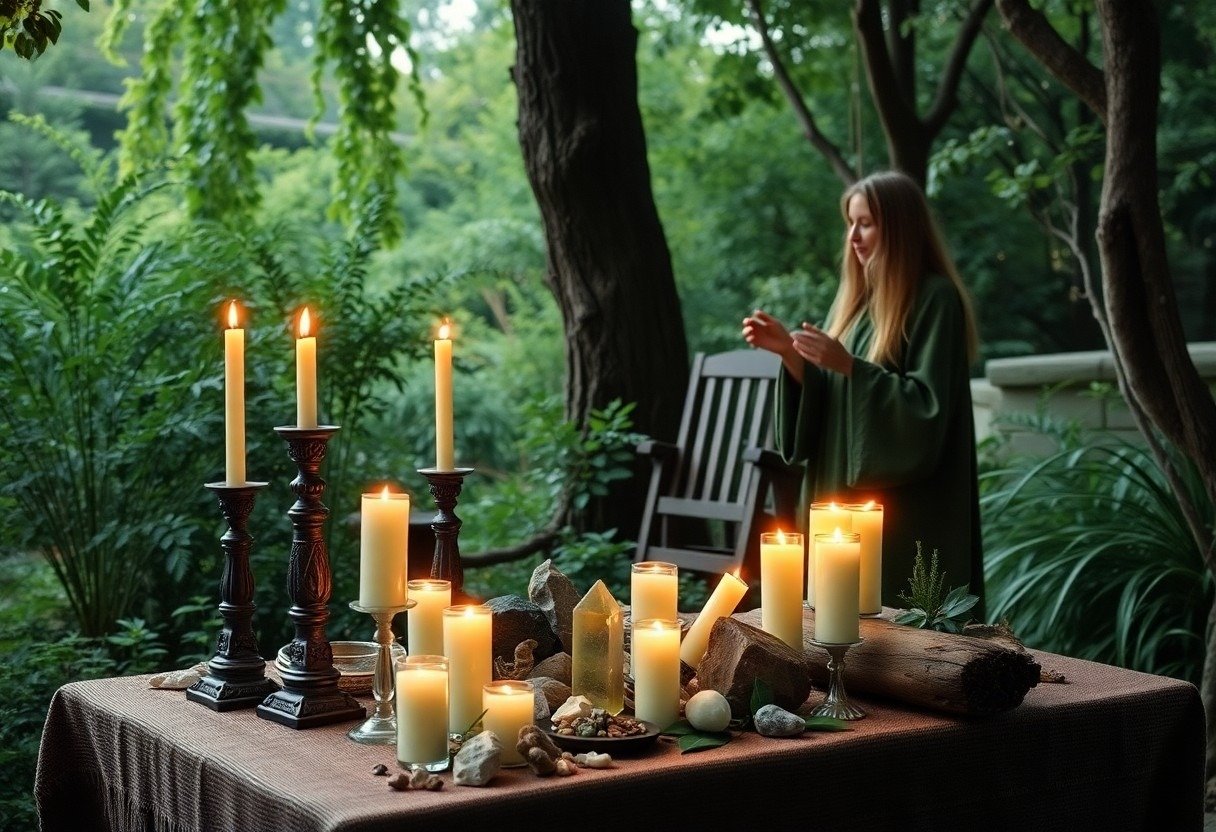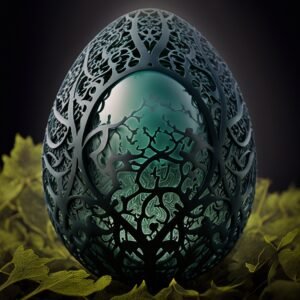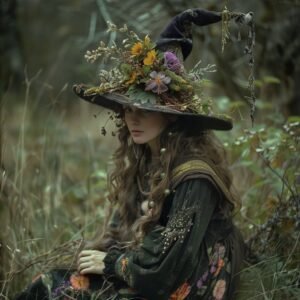Most people may not fully understand what it means to be Wiccan, but it embodies a rich tapestry of beliefs, practices, and values. As a Wiccan, you often find yourself deeply connected to nature, honoring the cycles of the seasons and the elements. Central to your practice is the Reverence for the Divine, often in dual forms of Goddess and God, as well as a commitment to ethical living rooted in the Wiccan Rede. Embracing these tenets can lead to a positive and empowering spiritual journey.
Understanding Wicca
For those seeking a deeper connection to nature and the spiritual realm, understanding Wicca can be enlightening. This modern pagan religion emphasizes the reverence of the Earth, the cycles of nature, and the divine presence in all things. In Wicca, you are encouraged to explore your spirituality through rituals, spells, and celebration of the seasons, fostering a profound relationship with the universe.
Historical Origins
Historical evidence suggests that Wicca emerged in the mid-20th century, drawing influences from ancient pagan practices, folk magic, and Western occult traditions. Key figures, like Gerald Gardner, played a significant role in popularizing Wicca, portraying it as a revival of pre-Christian beliefs. This synthesis of old and new elements offers a rich tapestry of spirituality.
Core Beliefs
Before delving into Wicca, it’s crucial to grasp its core beliefs, which center around the reverence for the Earth, the balance of duality, and personal responsibility in your spiritual practices. You are often encouraged to align with the cycles of nature, honoring both the God and Goddess in their many forms, and recognizing the interconnectedness of all living things.
At the heart of Wicca lies the principle that your actions have consequences, often summarized in the phrase, “As you sow, so shall you reap.” This belief underlines the importance of personal accountability, encouraging you to conduct yourself with integrity and respect for the environment. You are invited to celebrate the Wheel of the Year, which marks seasonal changes and agricultural festivals, allowing you to connect deeply with nature’s rhythms. Additionally, the practice of magic in Wicca is seen as a way to harness energy for positive change, emphasizing the significance of your intentions in the process.
Wiccan Practices
One of the most enriching aspects of being Wiccan is the variety of practices that can enhance your spiritual journey. These practices often include rituals, spellwork, and a deep connection to nature. Through these, you may find a greater understanding of yourself and a more profound connection to the world around you, cultivating a lifestyle that celebrates harmony and balance.
Rituals and Spellwork
Any Wiccan practice involves rituals and spellwork that help you focus your intentions and manifest your desires. These rituals often correspond with the cycles of the moon or seasonal changes, creating a sacred space where you can channel your energy. Spellwork can range from simple affirmations to elaborate ceremonies, encouraging a personal connection with the divine.
The Role of Nature
After embracing Wicca, you will likely develop a deep appreciation for nature’s role in your spiritual practice. Nature is not just a backdrop; it is considered a vital force that supports your magical work and spiritual growth.
Further, acknowledging nature’s influence means recognizing the seasons, lunar phases, and elements as integral to your practices. You will find that each season holds specific energies conducive to different types of work—spring embodies growth and renewal, while winter encourages introspection. Connecting with the Earth can also promote a sense of belonging and interconnectedness in your spirituality. Respecting the balance of nature allows you to align your energy with natural rhythms, enhancing your rituals and fostering a deeper spiritual bond.
Wiccan Symbols and Tools
Some of the most meaningful aspects of your Wiccan practice are found in the symbols and tools you use. These elements not only enhance your rituals but also connect you with the energy and intentions behind your beliefs. Each symbol and tool holds its own significance, helping to channel your energy and focus your intentions during your spiritual practices.
Common Symbols
About the world of Wicca, you will encounter various symbols such as the pentacle, which represents the elements and the spirit, and the moon phases, which signify change and cycles. These symbols are not only decorative but serve as powerful reminders of your connection to nature and the universe while guiding you on your spiritual journey.
Ritual Tools
Against the backdrop of your rituals, specific tools play a significant role in enhancing your practice. These may include the athame (ceremonial dagger), chalice, and wand, each serving distinct purposes. They assist you in focusing energy and channeling your intentions during rituals and spells.
Consequently, each ritual tool you incorporate into your practice carries significant meaning and helps you connect deeply with your spirituality. The athame is typically used to direct energy, while the chalice represents the goddess and the element of water. Your wand, often associated with the element of air, helps you manifest your desires. By honoring these tools and their meanings, you enhance your rituals’ efficacy and align more closely with your spiritual path.
The Wiccan Community
Keep in mind that being part of the Wiccan community can be a wonderfully enriching experience. It allows you to connect with like-minded individuals who share your spiritual beliefs, values, and practices. Throughout history, the Wiccan community has grown, fostering a sense of belonging and support among its members. Engaging with others in the community can enhance your understanding of Wicca, while also providing opportunities for friendship and collaboration in rituals, celebrations, and events.
Covens and Solitary Practitioners
Any Wiccan can choose to practice within a coven—a small group of practitioners—or as a solitary practitioner, allowing for personal expression of beliefs. Covens often follow a structured approach to rituals and teachings, while solitary practitioners enjoy the freedom to explore Wicca at their own pace. Both paths hold value and can lead to profound spiritual development.
Resources for Learning
To deepen your understanding of Wicca and connect with its community, you can explore various resources available online and in print. These materials include books, websites, courses, and forums where you can engage with other practitioners and share experiences.
Even as you begin on your journey into Wicca, it’s imperative to seek out reliable resources tailored to your interests and needs. Look for reputable books written by experienced authors, educational websites, and community groups that promote safe and inclusive learning environments. By immersing yourself in these resources, you will gain valuable knowledge about rituals, ethics, and beliefs, while also fostering connections with fellow Wiccans who can offer guidance and support on your path.
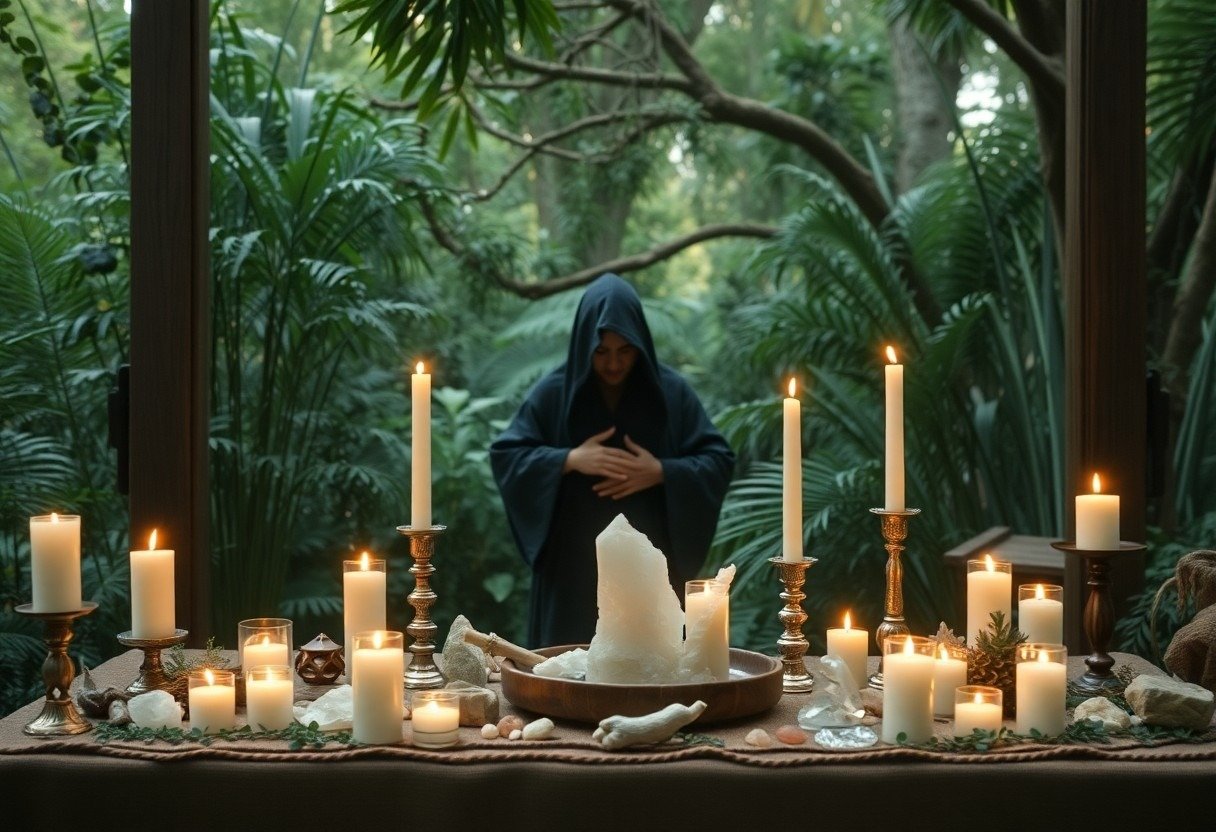
Misconceptions About Wicca
Once again, Wicca faces a slew of misconceptions that can mislead those unfamiliar with the practice. Many often mistake Wicca for devil worship, associating it with negative stereotypes, which is far from the truth. It is vital to understand that Wicca is a nature-based religion that promotes harmony, personal empowerment, and respect for all living beings.
Common Myths
Misconceptions about Wicca abound, leading to a distorted view of its principles. Some of the prevalent myths include the idea that Wiccans engage in black magic, are anti-Christian, or hold secretive rituals meant to harm others. These misconceptions can hinder open conversations about this spiritual path.
Clarifying Stereotypes
One effective way to address stereotypes surrounding Wicca is to distinguish fact from fiction. Many misconceptions lead to unfounded fears or judgments, making it necessary to clarify these issues through education and awareness.
| Misconception | Reality |
| Wiccans worship the devil | Wicca reveres nature and the divine |
| They practice black magic | Wiccans adhere to the ethical Wiccan Rede |
| Wicca is a cult | It is a legitimate spiritual path |
| Wicca is anti-Christian | It promotes respect for all faiths |
Also, understanding the tenets of Wicca can help counter stereotypes that paint it in a negative light. Education is key to dispelling fear and misunderstanding. When you open your mind to the beliefs of others, you promote a more inclusive world.
| Clarification | Focus |
| It’s about personal empowerment | Encouraging self-discovery |
| Rituals honor nature | Reverence for the Earth |
| Community building | Emphasizing connections |
| Respect for all beliefs | Encouraging dialogue |
Recognizing these points can help you appreciate the profound and enriching aspects of Wicca. By fostering an understanding of its practices and beliefs, you contribute to a more harmonious society where diverse spiritual paths are valued.
Becoming Wiccan
Not everyone who feels drawn to Wicca is born into it; many begin on a personal journey of exploration and learning. Becoming Wiccan often involves research, practicing rituals, and connecting with nature and the divine. You may find that your understanding of spirituality deepens as you explore various traditions, philosophies, and their significance in your life.
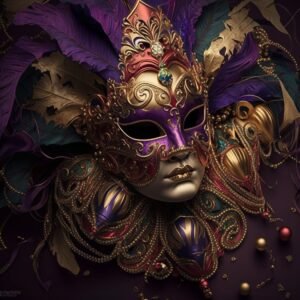
Unique Mardi Gras...
2.19$Exploring Your Path
Among the first steps you will take on your journey to become Wiccan is exploring different paths within the practice. Each tradition has its unique beliefs, practices, and deities, inviting you to find what resonates with your spirit. Engaging with various resources, communities, or mentors can help you gain clarity on the path that feels most authentic to you.
Initiation and Dedication
Among the significant milestones in your Wiccan journey is the process of initiation and dedication. This formal acknowledgment involves committing yourself to the Wiccan path and honoring the traditions you adhere to. It’s commonly marked by a ritual, signifying your acceptance of the responsibilities and ethics integral to your practice.
Understanding the process of initiation and dedication is important as it establishes a profound connection with your chosen path. During initiation, you may participate in a ceremony that signifies your acceptance into a coven or practice, whereas dedication often involves personal commitment to your spiritual journey. Each step has its significant meaning, and as you navigate your path, you may find it influences your beliefs and practices. It is crucial to approach these rituals with intention and respect, fully embracing the responsibilities, ethics, and values associated with being Wiccan. This journey is not merely about belief but also about actively participating in a spiritual community and fostering a deeper connection with the earth and spirit.
To wrap up
Now that you understand what it means to be Wiccan, you can appreciate the rich tapestry of beliefs and practices that encompass this spiritual path. Embracing Wicca allows you to connect with nature, honor the cycles of the moon, and practice rituals that resonate with your personal values. You may find empowerment in the duality of the divine, drawing strength from both the Goddess and the God. Overall, being Wiccan invites you to explore your spirituality deeply while fostering a sense of community and respect for the Earth and its inhabitants.


